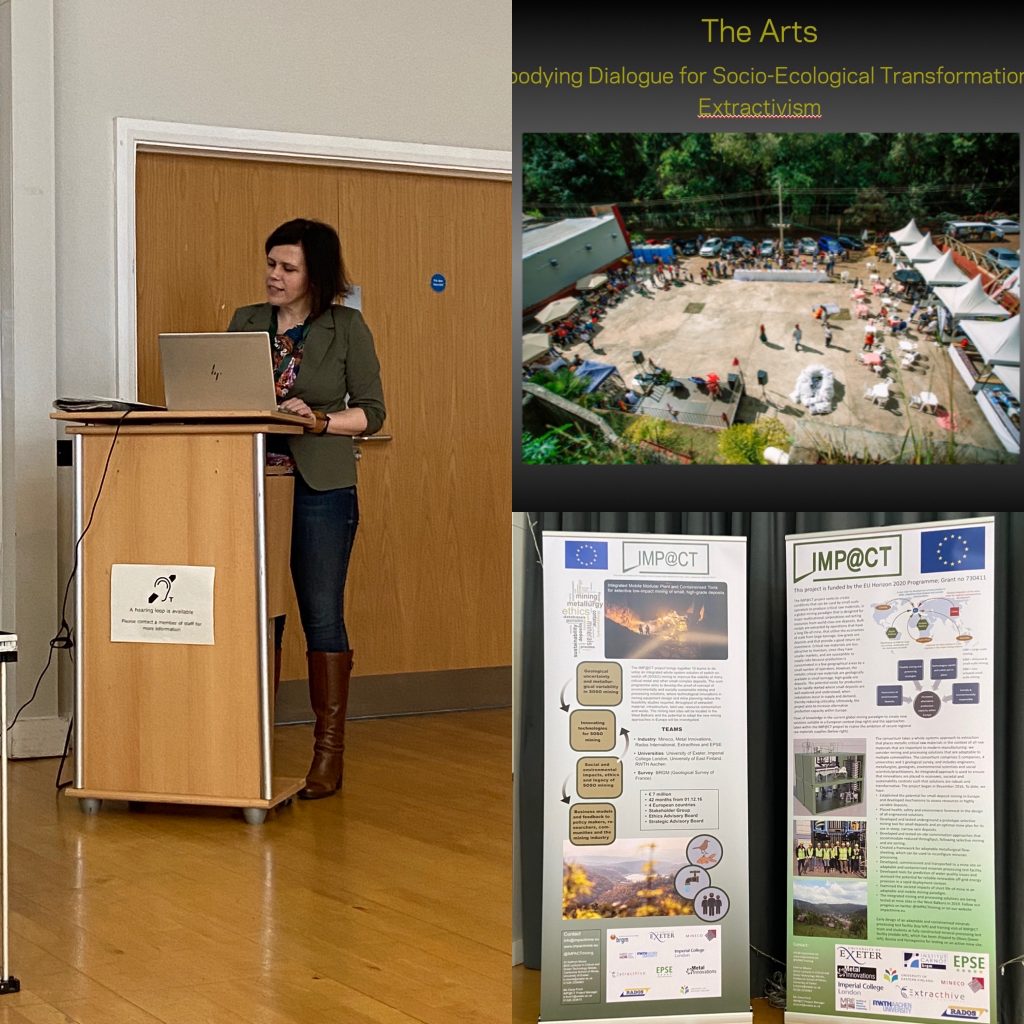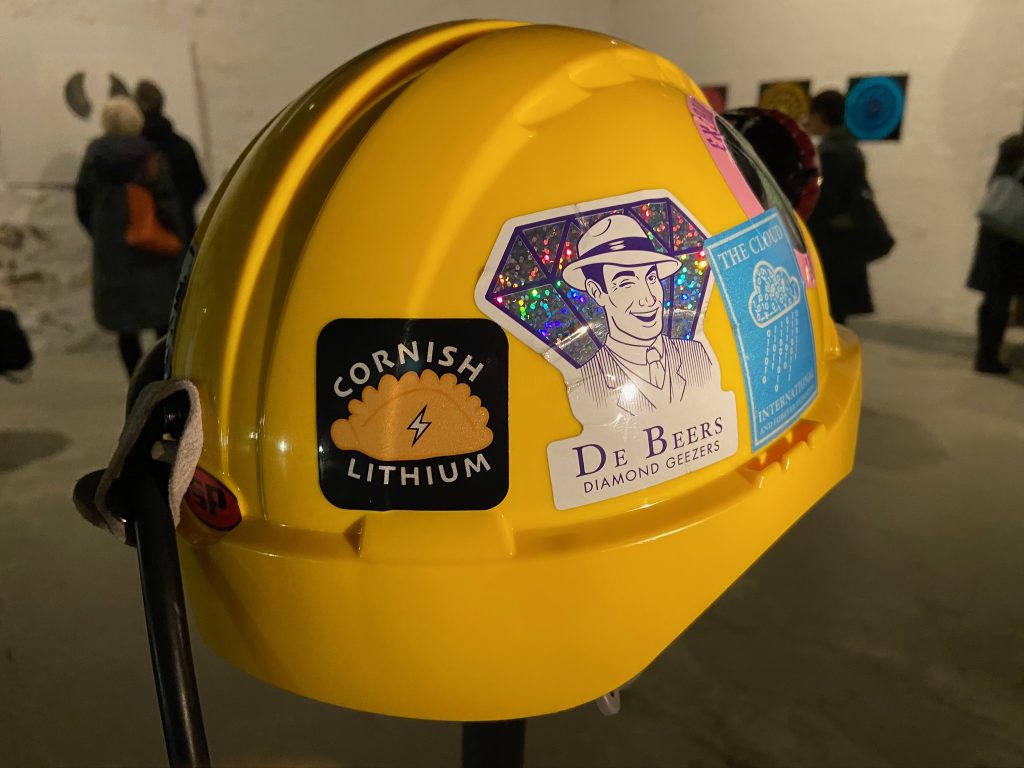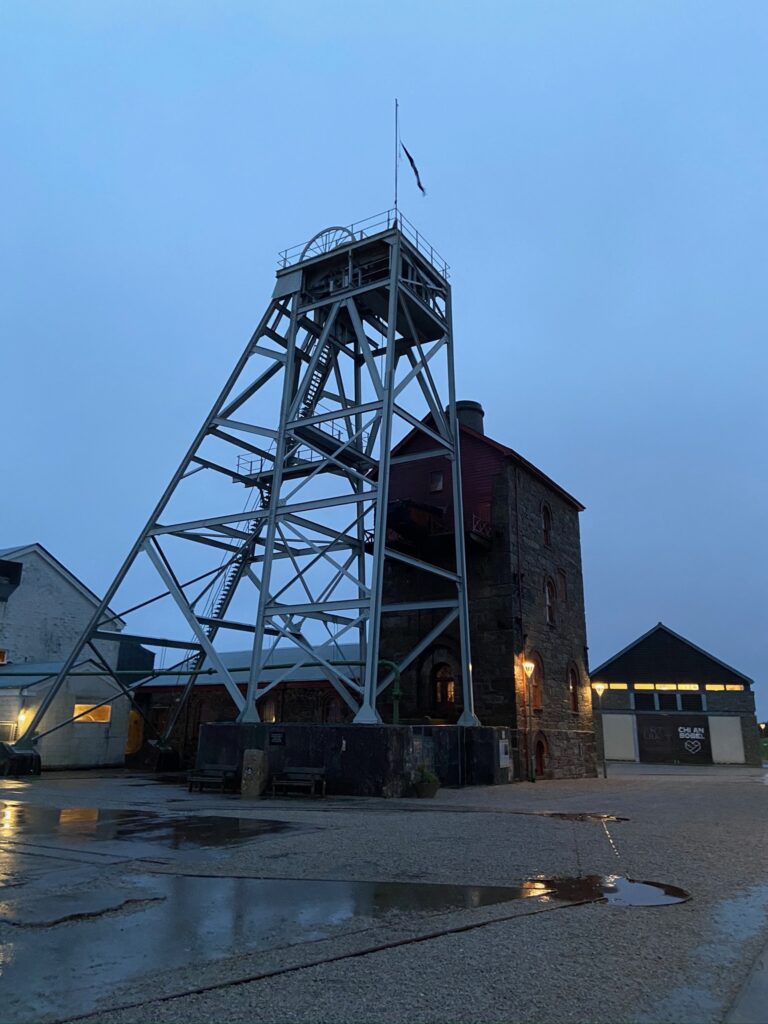Imp@ct Mining Conference: Mining and The Arts

The EU small scale mining project Imp@ct held its last conference and workshop at Heartlands in Cornwall from March 9-12, 2020 with the finissage Of Earth – From Earth by five selected artists.
The Arts – Embodying Dialogue for Socio-Ecological Transformation in Extractivism
Within this framework, it was a great pleasure to introduce artEC/Oindustry‘s reconceptualization of the role of the arts in areas of extractivism. Contrary to closed off, isolated corporate spaces in the mining as well as the art sector, I argued for tapping the arts’ potential in creating dialogue, interaction and change. The arts encourage us to listen, to indulge in experience, to leave secure realms of specialization and to comprehend and to adventure the connection and interconnection between people, nature and the environment. With examples from Japan and Brazil, I focused on the arts-led Cabra Institute in Casa Branca, Brumadinho in Minas Gerais that serves as a compelling example for community empowerment, trauma healing and societal transformation through artistic intervention. Following McKinsey Quarterly’s call for a “new leadership imperative,” which is based on transparency, empathy and meaning, I revealed a new understanding of the arts in areas of extractivism and its essential integration into the mine design from the early stages on.
Imp@ct Mining
The finissage Of Earth – From Earth proved the need for interdisciplinary interaction and dialogue in the context of geoscience, metallurgy and natural resources. Project manager, artist and initiator Dana Finch invited five artists to reimagine the extraction of raw materials through the lens of artistic practice resulting in engaging discussions, imaginaries and exchange between the participants. Funded by EU Horizon 2020, the four years Imp@ct project is an innovative example of a new approach towards the extraction of small deposits in Europe. The EU project explored the potential of switch on-switch off (SOSO) mining, tackling innovative technologies, questions on efficiency, safety, sustainability, low impact and socio-ecological responsible action in regards to temporary, mobile extraction sites. A consortium of various European partners and institutions, coordinated by Exeter University, collaborated with Mineco on mining sites in the West Balkan.
Accordingly, the conference included a profound body of experts and speakers covering a broad selection of topics. The majority embraced SDG goals from technological perspectives to socio-ecological viewpoints, to name just a few: circular economy (Edvard Glucksman), life cycle analyses (Robert Pell), renewable enegery (Anshul Paneri), questions on the perception (Pamela Lesser), achieving the SDGs and outreach in media (Dylan McFarlane), applying culture maturity for management of socio-environmental principles (Keiran Doyle), social impacts (Olga Sidorenko), absence and need of soft skills in geoscience (Nic Bilham), peace building efforts through relationship and stories in mining (Bridget Storrie), questions on sustainability in West Africa (Penda Diallo), legal trends and ecocide (Adele Rouleau) and the creation of algorithms for risk analyses (Carlos Petter). Artists Heidi Flaxman’s 3D woven landscapes, Henriette Simon’s metaphorical outlooks on mountains and caves as sources for our need of raw material and Jack Hirons’ play with vinyl sticker, words and mining equipment embraced the complexities around mining from visual, sensual and mindful perspectives.
Imp@ct’s co-leader Kathryn Moore emphasised the need for responsible small scale mining in the European context to meet our SDG goals. The ambitious project hence, although reaching the end, is just the beginning of a new collaborative effort. The arts and society might then find participatory spaces of interaction and knowledge production within the mining cycle as conceptualised by artEC/Oindustry.
Art by Heidi Flaxman, Henriette Simson, Jack Hirons / Speech of Dana Finch @Finissage in Heartlands




